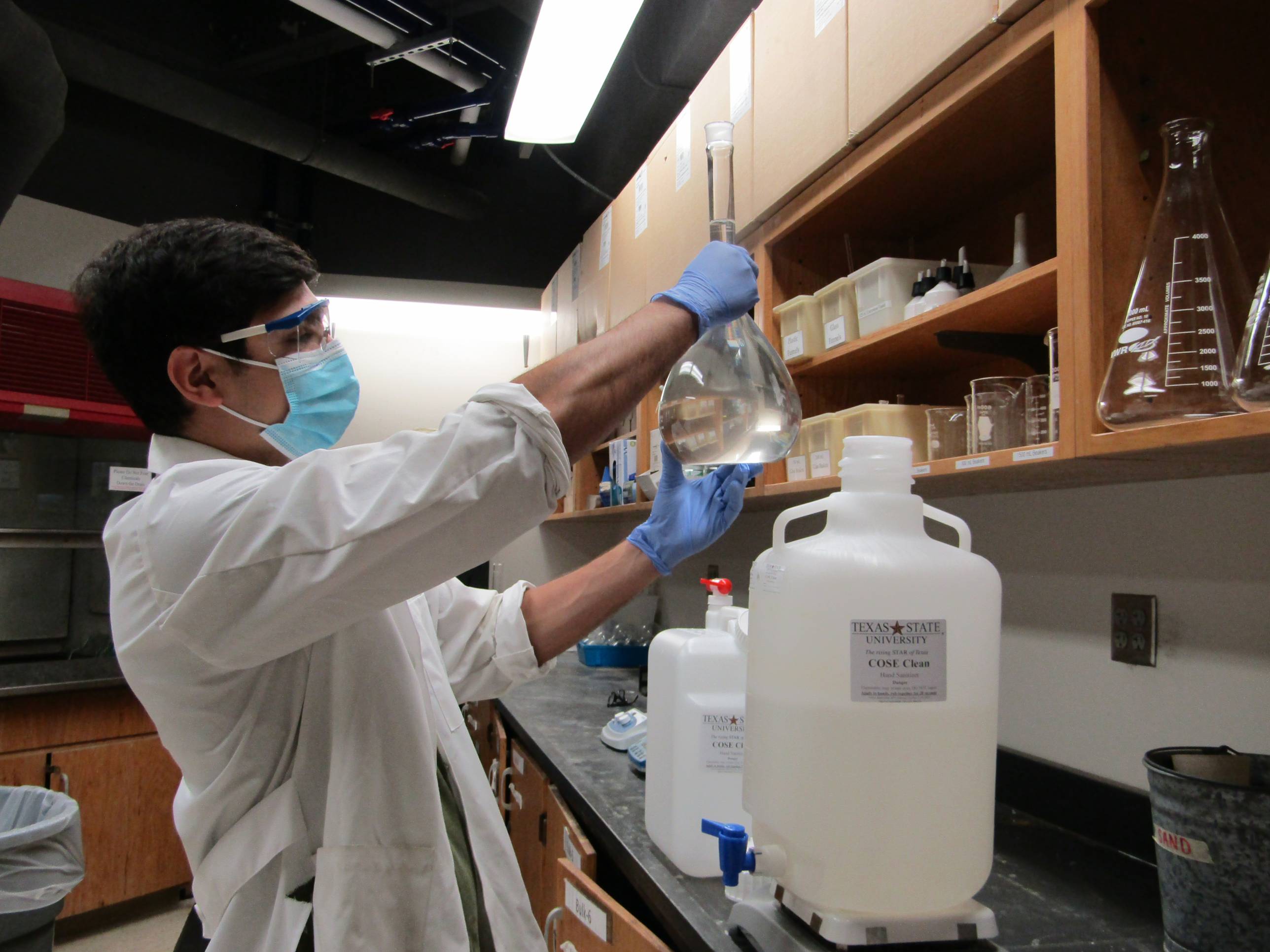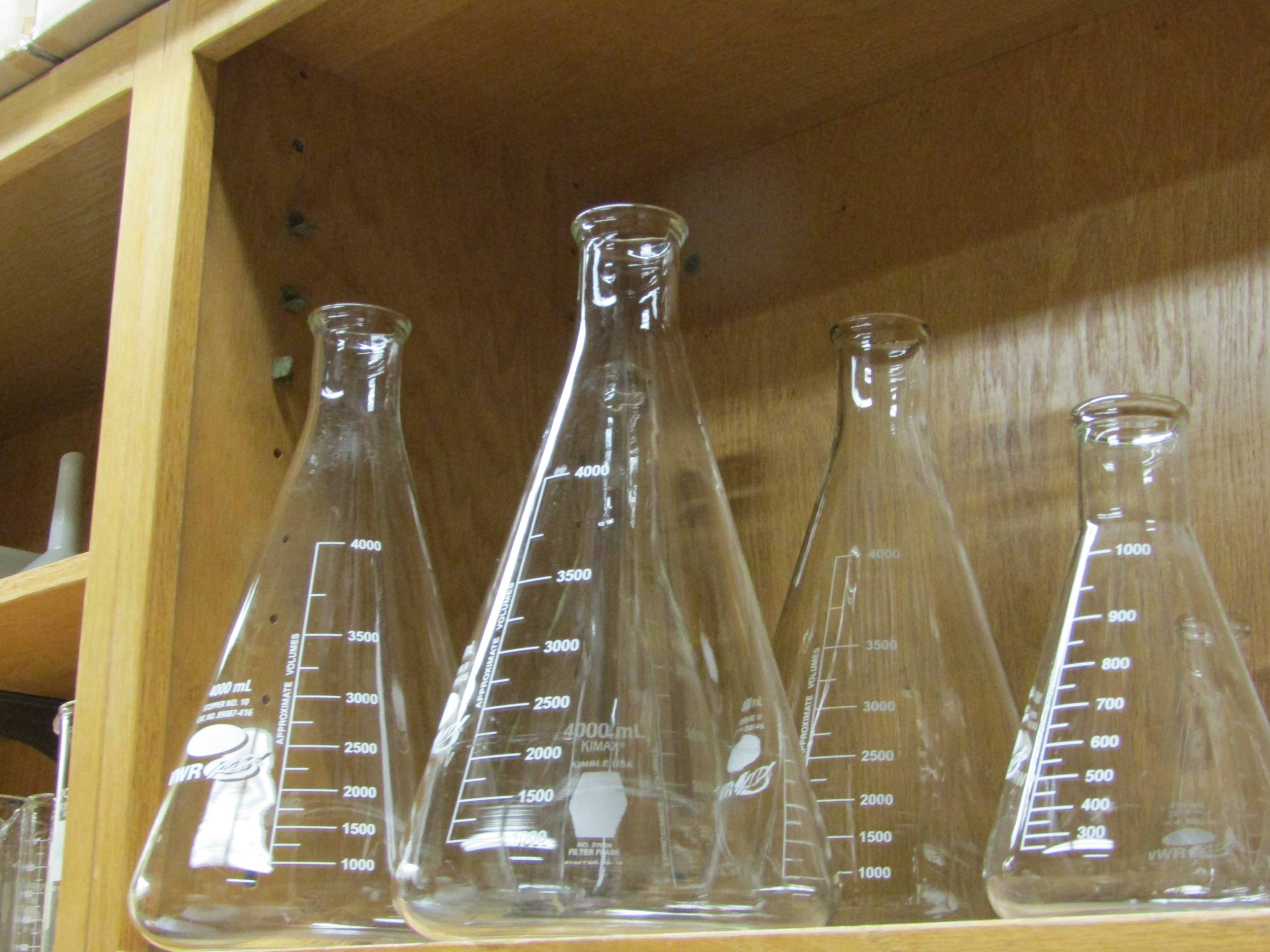Cleaning Laboratory Glassware
General Procedure For All Glassware
Stirbars, spatulas, funnels, flasks, beakers, and other reusable equipment
- To remove organic residues, rinse glasware briefly with an organic solvent (acetone or ethanol). The used rinse will then be discarded into the organic waste.
- Use warm tap water and a brush with soapy water to scrub the inside of curved glassware. This waste water can go down the sink.
- Remove soapsuds with deionized water to avoid harsh water stains. The DI water rinse should form a smooth sheet when poured through clean glassware. If this sheeting action is not seen, more aggressive cleaning is needed. To expedite the glass-drying process, rinse again with acetone to remove water. The residual acetone will go into the organic waste container.


Cleaning Burets
- Wash with soapy water
- Rinse thoroughly with tap water
- Then rinse three to four times with deionized water. The rinse should form a smooth sheet when poured through clean glassware. If this sheeting action is not seen, more aggressive cleaning is needed.
- Burets need to be thoroughly cleaned to be used for quantitative work such as titrations. To expedite the glass drying process, rinse again with a small volume of acetone to remove water. The used acetone will then go into organic waste.
Cleaning Pipets and Volumetric Flasks
- Clean pipets and volumetric flasks using warm soapy water
- Rinse with tap water followed by three to four rinses with deionized water. This water rinse should form a smooth sheet when poured through clean glassware. If this sheeting action is not seen, more aggressive cleaning may be needed.
- Dry using acetone to remove water. This acetone rinse will be disposed of in the organic waste container.
Additional tips:
- If water will affect the final solution, you can rinse with the solution you're using to remove the water. Then, triple rinse with the solution you're using to remove the alcohol or acetone.
- Remove stoppers and stopcocks when they are not in use. Otherwise, they may "freeze" in place.
- You can de-grease ground glass joints by wiping them with a kimwipe soaked with hexane or acetone. Do this in the hood vent to prevent you from breathing in the chemicals.
- Do NOT dry glassware with a paper towel or forced air. This can introduce fibers or impurities. Normally, you can allow glassware to air dry on the shelf. Otherwise, if you need to turn in glassware to the stockroom you can use a solvent as described above.
